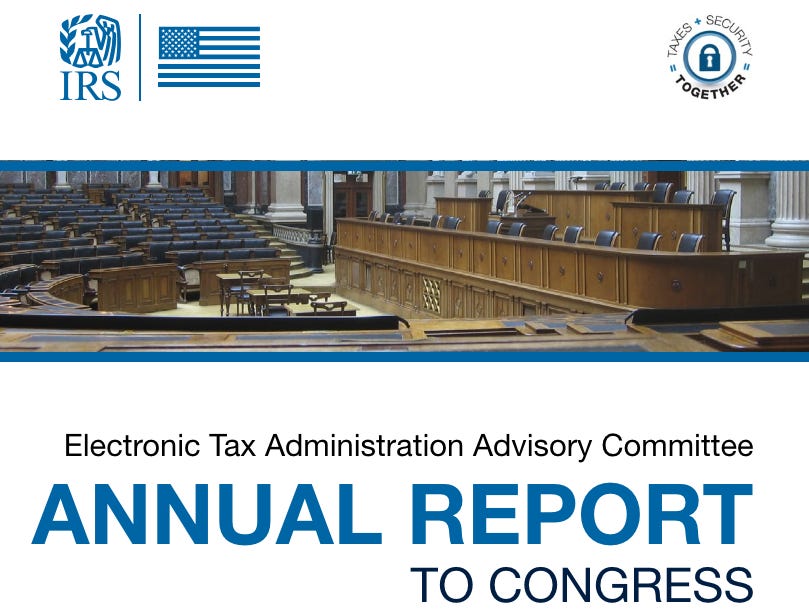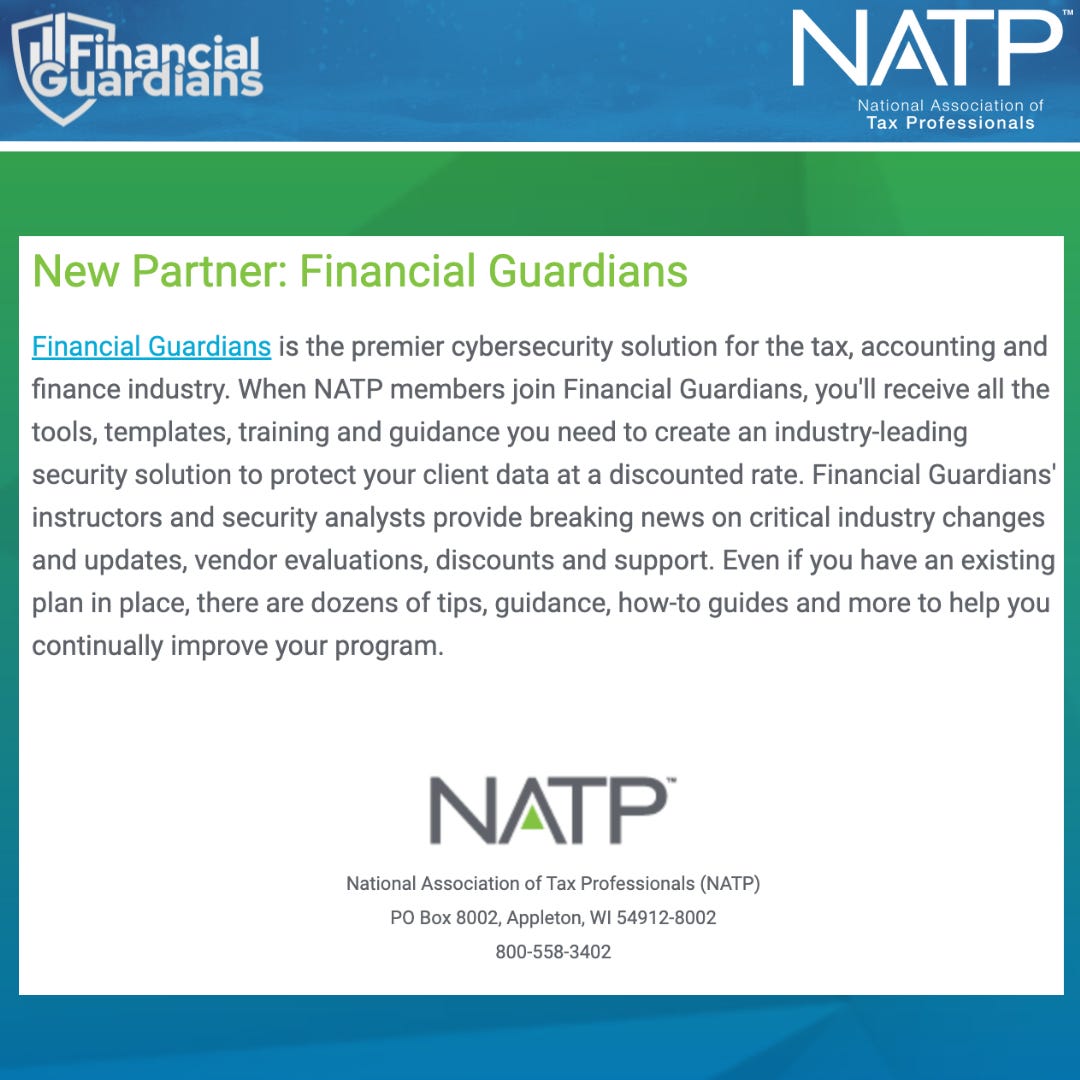Summary: Electronic Tax Administration Advisory Committee 2024 Annual Report to Congress (Would Their Recommendations Help YOU?)
The 2024 Annual Report by the Electronic Tax Administration Advisory Committee (ETAAC) provides a comprehensive review of electronic tax administration developments, recommendations for improvement, and legislative opportunities. This report highlights the progress and challenges faced by the IRS in meeting its goals of increasing electronic tax filings and improving taxpayer services. ETAAC is a collection of industry experts from all aspects of the industry - practitioners, government, vendors/suppliers, and more.
The Entire Report Can Be Read Here. Summary is Below.Background
ETAAC, established by Congress in 1998, serves as an advisory committee to provide recommendations to the IRS and Congress on electronic tax administration. The committee's mandate includes reporting on the progress of electronic filing, suggesting legislative changes, and evaluating the impact of electronic filing on small businesses and the self-employed.
The Electronic Tax Administration Advisory Committee (ETAAC) 2024 Annual Report to Congress outlines critical advancements and recommendations to enhance electronic tax administration. This comprehensive report details the IRS's progress and strategic recommendations to improve tax filing systems, taxpayer services, and overall efficiency.
Key Findings
Modernized e-File (MeF) System:
The MeF system remains central to the nation's electronic tax administration, facilitating efficient tax return submissions and communication between the IRS and state tax agencies.
Free File Program:
The program, operational for over 20 years, has provided free federal tax returns to over 73 million taxpayers, particularly benefiting low to moderate-income individuals.
Electronic Filing of Amended Returns:
Introduced in 2020, this initiative has significantly increased the accuracy and speed of processing amended returns, with a rapid adoption rate among taxpayers. Approximately 77% of amended returns are now e-filed.
Volunteer Income Tax Assistance (VITA):
VITA programs offer free tax help to eligible taxpayers, focusing on low-income individuals, persons with disabilities, and limited English-speaking taxpayers, enhancing community collaboration.
Detailed Recommendations
Regulation of Non-Credentialed Tax Preparers:
Congress should authorize the IRS to regulate non-credentialed tax preparers to prevent erroneous returns and protect taxpayers. The recommendation emphasizes leveraging existing IRS programs like VITA for effective training and education.
Support for IRS Modernization:
Legislative support, consistent funding, and strategic collaboration are crucial for the IRS's transformation initiatives. This includes maintaining transparency and effective communication with stakeholders to enhance tax administration.
Accelerated Filing Deadlines:
The report recommends amending IRC §6071 to require forms such as W-2G, 1099-K, 1099-R, and others with withholding to be filed by January 31st. This change aims to enhance fraud detection and improve data matching for tax administration.
API Access to Taxpayer Information:
Enabling secure API access to taxpayer information will disrupt scams, promote modernization, and improve the accuracy and efficiency of taxpayer experiences. This involves utilizing existing IRS services and developing new authentication mechanisms.
Alternative to Self-Select PIN:
The IRS should develop a more secure alternative to the Self-Select PIN process for electronic signatures. Learning from the Direct File Pilot's authentication methods, the IRS can reduce e-file rejections and enhance identity protection.
Enhanced Information Sharing:
Promoting greater data sharing with states and industry partners, including real-time data and best practices, will improve tax compliance and enforcement. This requires regular meetings and collaboration between the IRS, states, and other stakeholders.
Cost/Benefit Analysis of Free Filing Services:
Conducting a comprehensive analysis of free tax filing services will help determine the overall benefits, including cost, fraud prevention, and return quality. This analysis will guide funding and resource allocation to support underserved taxpayer groups.
Real-Time Data for States:
The IRS should provide real-time data to states to enhance compliance initiatives and address taxpayer issues promptly. This includes sharing audit results and other critical information to improve state-level tax administration.
Final Thought
The 2024 ETAAC Annual Report emphasizes the need for continued innovation, strategic collaboration, and legislative support to enhance electronic tax administration. By implementing these recommendations, the IRS can improve taxpayer services, increase compliance, and ensure the efficient operation of the tax system.
#cybersecurity #tax #taxtwitter #castwitter #irs #accounting #fintech #security #mousejiggler #tworking
NATP Members can follow this link to join with the 30% discount:




